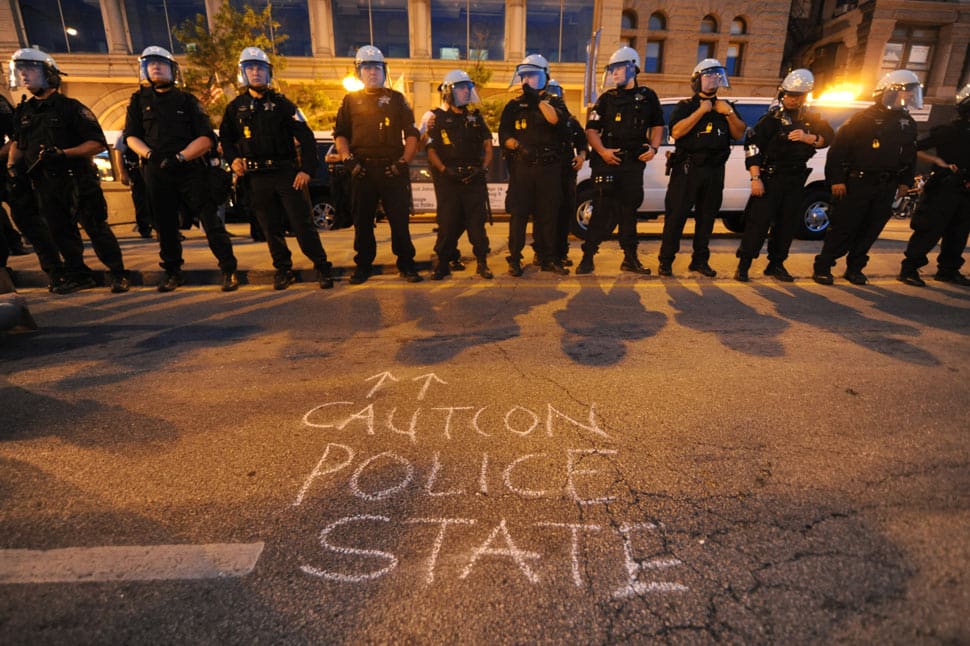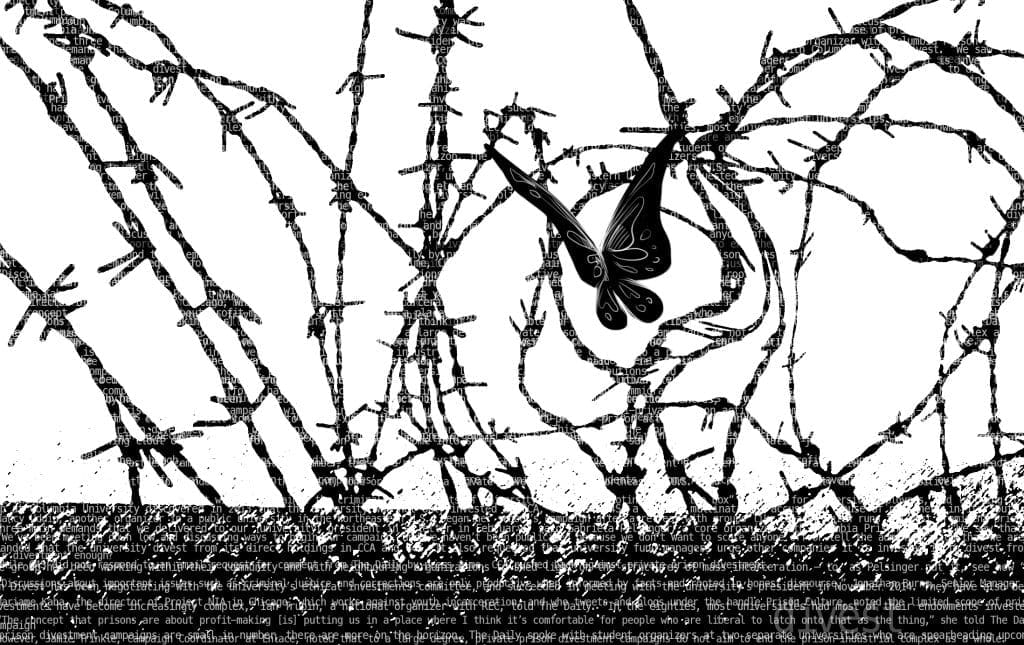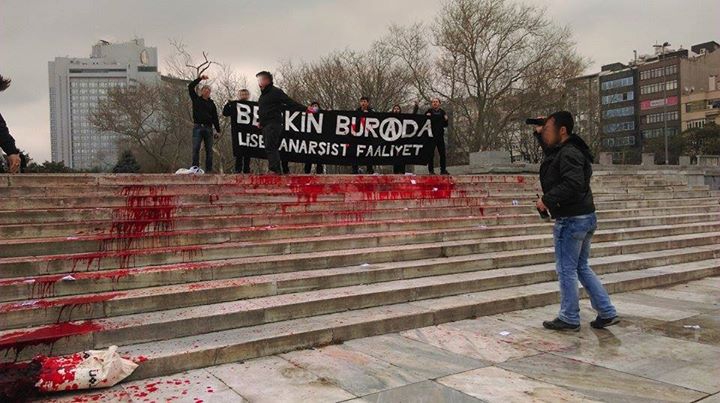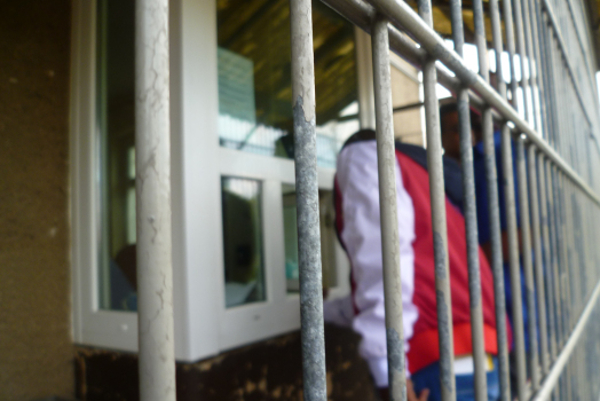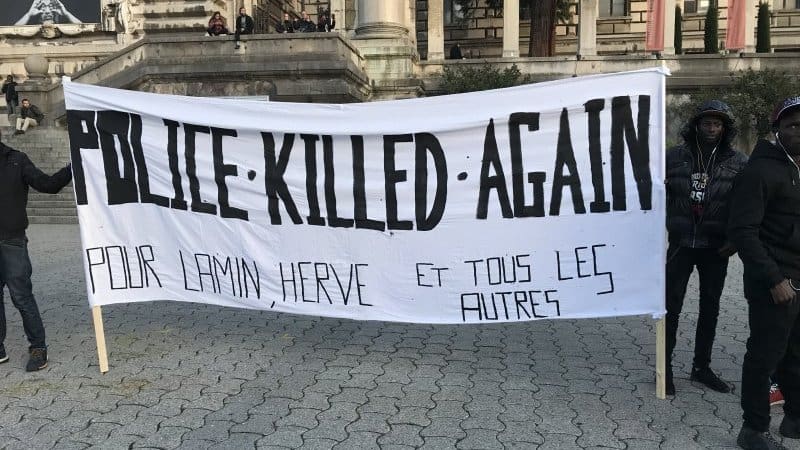AntiNote: This week marks two years since the NATO summit in Chicago and the large protests against it that filled an entire weekend with creative direct actions and marches (some better reported than others) and filled an entire city with militarized cops.
The NATO protests and the hyperbolic response to them fit all-too-neatly into the well-rehearsed protester/police/publicity choreography we have seen developing slowly and ominously worldwide since the late nineties, which author Kristian Williams summed up last year in an interview on the Ex-Worker podcast:
“[Since the Battle in Seattle] we’ve seen a new period of innovation in crowd control and a new period of experimentation. Sociologists Patrick Gillham and John Noakes describe the new system as Strategic Incapacitation.
Strategic Incapacitation borrows from both [of its predecessor models], Escalated Force [a la DNC 1968] and Negotiated Management [a la the entire 1980s and ‘90s], and selectively applies different aspects to different kinds of protesters. Protesters who are tagged as disruptive troublemakers receive Escalated Force kinds of treatment, while protestors who are tagged as lawful and cooperative receive Negotiated Management types of treatment.
On top of this, there is a new emphasis on controlling the public narrative; police are aggressive in their media strategy. Some of that is used to discredit protestors, and some of that is to paint themselves in the best light that they can.
There’s also a renewed and advanced emphasis on intelligence-gathering ahead of time, because the police want to know exactly who is coming to a demonstration, and for exactly what purpose, so that they can sort out which groups they should accommodate, which groups they should negotiate with, and which groups they should suppress.”
Combine all of this with the War on Terror mentality (and money) being applied domestically—and a conference with international, imperial implications—and we get the NATO 3.
In the spirit of providing a counterweight to the commercial media (i.e. police) narrative that prevailed after the NATO protests—the same as it does after any such event—we present here two perspectives from people ‘on the ground.’
First, a brief summary of events from former Chicago Copwatcher Spencer Thayer, who was present at many actions, both planned and spontaneous, over the protest weekend itself.
Then, a word from defense lawyer Thomas Durkin, who represented Jared Chase at the political show trial of the NATO 3 in Chicago, which just wrapped up last month.
Both are excerpts from interviews conducted by Chuck Mertz on This is Hell! radio, the full archived versions of which will be made available online eventually. Transcribed and printed with permission.
The Black Bloc, diversity of tactics, and reinforcing defiance
Chuck Mertz: I was tweeting about the media coverage of the NATO protests on Sunday [20 May 2012]; I was sick as a dog so there was no way I could go down there myself—plus I don’t go to protests because I do this radio show and I think there might be some conflict of interest.
I wrote a tweet about the Black Bloc because of what our guest Spencer Thayer has said on the show in the past; he informed me about Black Bloc tactics, and the whole point behind breaking windows. Here’s the tweet: “Fun fact: Black Bloc windows-breaking is tactic to distract cops from violence they’re engaging in. Broken window better than broken person.”
I then got accused advocating violence. Now, there are two problems with that. Number one: vandalism is not violence. Equating vandalism with violence underestimates the horrible nature of violence against the human body. That is an awful thing, and you shouldn’t equate punching somebody in the face with breaking a window. Vandalism is vandalism. Violence is violence. They are two different things, and equating one with the other is wrong.
Secondly, this was not advocating violence. If I tell you how or why Lee Harvey Oswald killed JFK, does that advocate the assassination of Kennedy? No it doesn’t. All I am doing is describing something, trying to do a thorough and healthy analysis of the situation. This really upset me, because I absolutely do not advocate violence. But I don’t think that vandalism is violence, and I think that this tactic by the Black Bloc is fascinating. The Black Bloc has been around for—what, 25 years, now? Maybe people should start talking in a more honest way about what Black Bloc does.
Anyway, I just wanted to get that off my chest. Spencer, how do you think the protest went? It was fantastic, right? You’re really proud of the city of Chicago, right?
Spencer Thayer: Oh, absolutely. I mean, the police were a paragon of virtue.
It was a ridiculously peaceful protest in the grand scale of things. We didn’t see any real vandalism in any form. I did not pay attention to the mainstream media at all—did anyone report anything about windows being broken?
CM: No.
ST: Yeah, it never happened. Anyway, yeah, I think it was a fairly successful protest. It had a meaningful impact, there was entertainment; people in the crowd were generally pleased with Tom Morello and all the entertaining and interactive things that you could do.
In terms of challenging the state, though, I don’t think that any of the permitted marches even came close to doing that in any way. They didn’t make the people in the NATO conference feel like they had to cancel the meeting. So if your goal was to shut down the NATO summit, it was a total failure. It really comes down to what you were trying to get out of it.
I think it was the best outcome we could have expected, given the context of Occupy Chicago. I haven’t talked too much about my complaints with Occupy Chicago, because I feel like a lot of the issues I have with Occupy Chicago are my own internal issues; it’s my own ego getting in the way of the consensus process, so it’s my problem. I’ve always felt kind of ostracized because I was so radical. I’m an anti-capitalist, and Occupy Chicago isn’t anti-capitalist.
But this NATO summit has actually changed that. Most of the kids that I’ve been arguing with about anti-capitalism were in the streets shouting “A! Anti! Anticapitalista!” It was a great party, and it really radicalized the youth that are the backbone of Occupy Chicago. So I’m really excited to see what comes out of that, now that so many of these people have been radicalized. They were, up until this point, very afraid of confronting the police state. And now that they’ve been beaten by batons and hit by bikes, they know that it’s not actually as bad as they think it is, and that we have the power to take the streets.
After the clash with the police on Sunday, after the IVAW (Iraq Veterans Against the War) had their speeches and threw their medals—
CM: Some of those speeches were amazingly poignant. I thought that was a great way to get the message to the crowd: this is an anti-war rally.
ST: It was really good.
But the whole reason the police conflict happened at that spot—I witnessed the whole thing; I was with the Black Bloc during the entirety of the protest. Not actually as a Black Bloc member, but functioning as Cop Block, which is a tactic of Copwatch where you monitor the police and inform people if the police are looking for somebody that fits their description, that sort of stuff. It’s a way of keeping people from getting arrested. So I was monitoring what the white-shirts, the police sergeants, were saying and doing.
And the Black Bloc was antagonizing the police—this is something the Black Bloc does: these little dumb pranks which are really, really fun. They were locking arms and running from the eastern side, where the stage was, all the way to the very end of the police barrier, which was two city blocks. Just running back and forth. Causing the police—Chicago police are known for being extremely out of shape—to have to run back and forth, too. They were getting so annoyed.
And everyone got into it. It wasn’t just the Black Bloc.

CM: Does that happen a lot with Black Bloc tactics, that people join in?
ST: All the time. That’s something that most people don’t really realize. Half of the interactions with Black Bloc tend to be people getting involved, because they show people that you can challenge the police state and get away with it. It’s a very liberating experience, when an officer gives you an order, to say, “nope, I don’t think I’m going to do it, sir, you can go somewhere else.”
So anyway, they were running back and forth, antagonizing the police, but everyone was getting a little bored with it. So what the Black Bloc does, in their ridiculously democratic system: when they want to make a decision on what they’re going to do next, they all huddle together like a football team, and they work in a consensus process to determine what’s next. They put flags over everything so people can’t read their lips or take pictures of them during points of vulnerability. So there’s this big black blob with all these flags covering everyone, and a police sergeant ordered the cops to disperse that, because he saw it as a threat.
So I run to the Bloc, and I yell that the cops are coming. What I didn’t know at that time, because I wasn’t involved in the consensus process, is that they decided that this march was just not for them; it was too boring, the police weren’t going to do anything—and they were going to disperse.
They wanted to keep moving so the police couldn’t kettle them. They were going to leave that spot because it wasn’t a good place, tactically; there were cops all around and they couldn’t do anything. So if the cops had allowed the Black Bloc to finish their meeting and leave, the whole thing at the IVAW stage would never have happened.
But instead this wall of police jumped down from the line and start pushing in to try and grab the Black Bloc.
I went to warn them, and they all ran towards the stage—and that is where the confrontation with the police happened. There was a wall stopping them, a wall of police.
CM: So because the police viewed this planning as a threat, they decided to be pre-emptive, and it led to a confrontation that was unnecessary. This sounds like a war that we started, maybe in 2003? Something along those lines, a pre-emptive strike that leads to more violence that was avoidable?
ST: Absolutely. It was just a clusterfuck. It could easily have been something entirely different. And the majority of other people there—it wasn’t just the Black Bloc that was on the front lines and didn’t want to disperse.
It was your standard protester-versus-police standoff that was never going to go anywhere. Eventually the police, in that situation, are going to start cracking heads. It’s always what happens. Then they split the Bloc and other people who wanted to participate in direct action—which was the majority of the crowd, shockingly; most people did not want to disperse—and corralled us.
CM: That’s basically what kettling is. There’s nowhere for you to go, and often when people are trapped in a kettle—like what happened at the RNC in New York City in 2004, like what happened here a few years ago at the anti-war protests—they surround you, and the protesters want to leave. They don’t want a confrontation with police. They ask, “which direction should I go?” And the cops say, there’s nowhere for you to go; you’re going to be arrested.
ST: Yep. So they started arresting people, and that kind of killed everything. I wish something else would have happened. I really wish we would have been able to disperse without any arrests. It was pointless.
But later that evening, the Bloc—and a bunch of people who were just radicalized by seeing police violence—marched up to the horse statue on Congress and Michigan. It was an anti-capitalist march; There were maybe 600 of us. It was an amazing time.
It’s called a snake march. We march around the city with no particular plan, we just go around randomly, all over the city, obstructing traffic, chanting in the streets; the police can hardly do anything about it. They try and kettle us with bikes…but the bike police are really easy to get through; you just push the bikes out of the way. After the third or fourth time going through the police bike line, I heard one of the cops saying, “this is not working.” It was really funny.

CM: At this night march, was there just as much of a police presence?
ST: Yes, there was, but we were getting away with it because we were mobile. Just like with Critical Mass. There’s nothing they can do as long as you stay moving.
The great thing was that after about thirty minutes of marching downtown and obstructing traffic, we got the idea that we wanted to go to the art museum and annoy Obama and his wife.
CM: I saw that on TV: Michelle Obama was hosting a party for leaders’ wives or something like that.
ST: It was a NATO wives thing, right. The thought was, that might be as close to power as we could get. And so we successfully outwit the police, and we get in front of the place after maybe an hour of cat-and-mouse. We had a really amazing chant, we were sitting down, we lay down, it was really fun, and a lot of people think it was the most successful part of the protest.
Then again, the main protest on Sunday got the closest to the actual NATO summit where all the dignitaries were. The city of Chicago armed boats on Lake Michigan with machineguns and rocket launchers!
CM: We waste so much money on this crap. It is amazing.
Another thing I tweeted during the protests was “NATO win-win for Rahm: if violence, that’s why we needed cops. If not, that’s why we needed cops.” I don’t think that [mayor Rahm Emanuel] could have lost in this situation. If there had been a ton of violence downtown, he could have said this shows why we needed such a huge police force. And since there wasn’t as much violence downtown, he can say, “see, this proves that the police force works.”
ST: The only way this could have turned out bad for Emanuel is if we had had a bona fide police riot. And that just wasn’t going to happen. Some people thought it was going to, but anyone who really knows the city and the politics happening right now knows that the police were never going to recreate ’68. Even though all the police message boards were like, “we need to do some hippie-bashing; let’s recreate ’68”—there were a lot of police that really wanted to escalate things. But no one was going to put their job on the line to be the first officer to shoot someone or really go after someone.
CM: Then again, there’s always the media. At one point during the live local coverage, WGN’s Allison Paine said, “it’s time to teargas this crowd.” It’s time to teargas this crowd.
ST: Really?
CM: Meanwhile Gary McCarthy, the Chicago Police superintendent, is saying, “we do not want to use tear gas,” because he knows it’s going to look horrible on TV.
So the police are against using teargas on protesters, but the media, the news—this journalist is for people who are exercising their freedom of assembly and their freedom of speech being teargassed.
ST: That is crazy. You know, that’s not the only terrible journalism around this. Connie Reyes wrote this terrible thing in the RedEye called Cops Boost Our Chicago Cred. This is my favorite kind of journalism. She wrote this amazing line right at the very beginning: “Being smart enough to stay the hell out of downtown during the protests, I spent my weekend glued to the internet like the rest of the nation, keeping a close eye on the chaos.” That is journalism, man!
CM: WGN reported, “it’s hard to see kids chanting ‘peace,’ then with bloodied heads…but”—here’s the quote—“that’s what you get when you don’t follow police requests.”
ST: Oh, yeah. That’s what you get when you don’t follow police requests, and you don’t use smart tactics.
“At least they had the good judgment not to wear brown.”
Chuck Mertz: On the line with us right now is Tom Durkin; he is a nationally-known trial lawyer specializing in the defense of complex federal criminal matters. He is also the attorney for Jared Chase, one of the NATO 3 who were found guilty and have now been sentenced to five, six, and eight year prison terms, respectively. Tom, thanks for being on the show this morning.
Thomas Durkin: My pleasure, Chuck.
CM: This is an incredible honor. Before we get to the NATO 3 case, let me just read about a few of your previous cases for our listening audience: “Mr. Durkin was selected as one of five lawyers nationwide to participate in the John Adams project, a joint effort by the ACLU and National Association of Criminal Defense Lawyers, to provide civilian defense counsel in the case of U.S. v. Khalid Sheikh Mohammed, the initial 2008 capital trial in the military commissions at Guantánamo Bay, Cuba; Mr. Durkin was civilian counsel for Ramzi bin al-Shibh, who was charged with conspiring to orchestrate the September 11th attacks on the World Trade Center and Pentagon.”
Why do you take these kinds of cases?
TD: I think these are the most important cases in the country right now. I think the War on Terror, which I happen to believe is an extension of the War on Drugs, is one of the most misconceived policies we’ve taken on. Whenever you start using war rhetoric there is real danger to civil liberties, and I think terrorism cases today—both international ones and domestic ones—are the most important criminal cases in the country. It is incumbent on good lawyers to step up and defend. That’s what my wife and law partner Jan Robertson and I have done for thirty years. That’s what we’re here for.
CM: What’s the connection between exaggerated threats to our national security and exaggerated prosecutions of our citizens?
TD: There’s a direct connection. For anybody that’s interested, there’s a very good article by professor John Mearscheimer from the University of Chicago called America Unhinged, and he directly relates what he conceives as our misguided foreign policy to a means of destroying or causing serious problems to liberal democratic values at home. I think foreign policy can’t be separated from national security. National security, for years, has been mostly about foreign policy. Now, it’s mixed up into domestic policy as well, and I think it’s a little delicate—to put it mildly.
CM: So let’s go back to May 2012, when the G8/NATO super-conference was coming to Chicago. The G8 gets a bit concerned about the security situation so they back out. NATO still comes to Chicago. There are protests downtown and a huge run-up to these protests. Your client, Jared Chase, and his friends Brian Church and Brent Betterly—they come from out of town to be part of the protests.
Here’s how the Chicago Tribune reported it yesterday [25 April 2014]: “prosecutors alleged that they had plotted attacks on police stations, President Barack Obama’s campaign headquarters, and mayor Rahm Emanuel’s house. But the defense, bolstered by undercover police recordings that prosecutors played in court, argued that the three were goofs who talked big and were goaded on by two police officers working their first undercover investigation.”
These attacks that were being planned, supposedly, on police stations, on Barack Obama’s campaign headquarters, on mayor Rahm Emanuel’s home—was there any evidence that suggested these were actually going to take place?
TD: No, not in my view of the evidence. You certainly could select certain statements that were made on the tapes that would leave you room to make that claim, but it’s just an exaggeration. One of the things that was obvious during the trial was that you had to view all the tapes in context. A lot of these were drunken conversations sitting in a park. It sounds like a dorm room bull session, with people yelling in their opinion, and all kinds of drunken chatter.
These conversations were almost laughable at times. And this whole thing about “watching a cop set on fire,” which was the mantra that the state has been yelling about now for two years, is vastly overstated, and it’s an overreaction. The real issue here was overreaction. It was the charging decision that we found so repulsive, and still do.

CM: Have we gotten to a point right now where I cannot say anything that may be construed later on as plotting for terrorism, because I could be going to jail?
TD: I think what you’re speaking to is an issue that Mark Brown from the Sun Times has raised now several times. In an article I saw online last night, he took the position (and Mark Brown, as we quoted in our sentencing papers, is usually a pro-prosecution writer) where he finds what the police did in infiltrating Occupy more egregious than anything he heard as evidence at the trial.
Have we reached the point where the government is listening in on everything? Of course we have. That horse has been out of the barn for a long time; we just now are beginning to realize the extent of it because of Snowden. Does that create a chilling effect? Of course it does. Do I think things are so bad that you can’t talk about having a joint without getting arrested? I think that’s a bit over the top.
When people make charging decisions like they made here, that’s a far bigger chill, it seems to me, in terms of What are you going to do the next time? Are you going to come to Chicago again to protest? If people were to ask me, I would say, don’t come to Chicago to protest, no matter how good your intentions are.
Sometimes I feel like a chorus of one about whether anybody noticed what a police state Chicago got turned into during the NATO demonstrations. I argued yesterday about the black-shirted police force—I have pictures on my iPhone from Grant Park, where I was stunned to find that we had black-shirted police; some type of special police. As I said yesterday, at least they had the good judgment not to wear brown.
I said it yesterday and I’ll say it again: if anyone thinks that the $27.1 million that got spent on creating the security apparatus for NATO is just going to be put away and not used again, I think they’re wrong. And I suggested to the judge yesterday that what it’ll end up getting used for is the next time a bubble bursts in this fragile economy. Then it’ll be used to keep the ghettoes quiet.
I personally think that’s what’s going on, and I think it’s a consequence of a national security state. It goes back to Mearscheimer. But I don’t know that it’s all ill-intentioned. There are a lot of people who believe that we are literally on the verge of existential destruction by some terrorist. I find that to be absurd, but I think it’s been put in those terms, and that’s where war rhetoric gets you. That horse is out of the barn, too.
CM: One of the things about this trial is that it was a political trial to score political points. Again, from yesterday’s Tribune: “in the first test in Cook County of a state terrorism law enacted in the aftermath of the September 11th attacks, and a blow for State’s Attorney Anita Alvarez who was pushing for the prosecution, a jury in February acquitted all three of the more serious terrorism charges, but convicted them of felony counts of possessing an incendiary device and misdemeanor mob action.”
So, knowing that this was a political trial to score political points, did it work? Do you think this helped Anita Alvarez’s political career, and will this win Rahm Emanuel votes?
TD: Well, if Alvarez was accurately quoted yesterday, she insists that she’d do it all over again if she had the opportunity, and she’s calling it a very successful prosecution. I made a lot of fun of that yesterday, and I’ll stand by what I said. It was absurd. All you had to do was watch her demeanor the night of the verdict, and as much as she claimed it was a win or kept saying “how could this be a loss?” I think her demeanor have her away.
But yesterday I argued, and I’ll stand by it: we only went to trial to fight the terrorism charge. And we won. In that sense, this was a very significant victory. I think that the attempt to get the draconian sentence they were looking for was nothing more than to get political vindication, and I’m glad that judge Wilson didn’t cave into that.
But still, Alvarez and her people are yelling that they had a victory. I don’t think it was a victory; I think it was a stain on all of Cook County, and I meant what I said yesterday. I’ve lived in Chicago all my life, I grew up here, I’ve always been proud to be a Chicagoan, and the first words out of my mouth in my argument yesterday were that I’ve never, ever said that I was embarrassed to be from Chicago, but I was embarrassed by the position the prosecution took.
One of the things I mentioned yesterday is the nativist element of this whole thing. It was like, we’re not going to let these “outsiders” come in here. And this is supposed to be a “Global City,” which Rahm Emanuel runs around touting all the time; he was able to raise $30 million from “Global Chicago” to fund the NATO Protection Society (for want of a better term).
I find it incongruous. I find it very interesting that we have a mayor who insists that we’re going to become a world-class city, that we’re a global city now—and yet we respond like the 1850s nativists did to the Irish immigrants, with words like “outsiders.” It’s kind of an old Chicago trope. It hearkens back to 1968. “Not gonna happen in Chicago!” It is rather embarrassing.
CM: One last question for you, Tom, and it’s our Question from Hell, the question we hate to ask, you might hate to answer, or our audience is going to hate the response. I know that you’re glad that you got the terrorism charges dismissed, but was there anything during this trial that you think you could have done better?
TD: I learned a long time ago that you can’t second-guess yourself. You can only look at your decisions at the time you make them. And I also learned a long time ago that I didn’t do it. I didn’t create the facts. There were facts, and we had to deal with them.
It was a difficult case, and cases are made by the facts. And there were some facts here that were not pretty. I acknowledged that yesterday. But it wasn’t terrorism. This was a show trial, and we did what we could do. I thought the defense team was excellent; they were a pleasure to work with, and I’m very proud of what we did.
Featured image credit: C. S. Muncy, boingboing.net
All other images: Paul Weiskel, ROARmag.org

